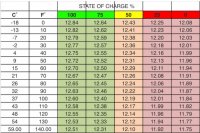Martyn 4950
- Messages
- 95
- Vehicle
- T5 SE 140
Ok another battery question. Had new batteries in November 2019. Use the van as a daily vehicle and put on charge once a month.
Was in van last night for 2 hours with heater on no 2 setting and one interior light on. B
Battery went down to 60% very quickly
Checked battery this morning and was back up to 100% without any hook up. Had fridge on for about 2 hours and battery down to 90 % . Im completely baffled by this dark science
Was in van last night for 2 hours with heater on no 2 setting and one interior light on. B
Battery went down to 60% very quickly
Checked battery this morning and was back up to 100% without any hook up. Had fridge on for about 2 hours and battery down to 90 % . Im completely baffled by this dark science
















